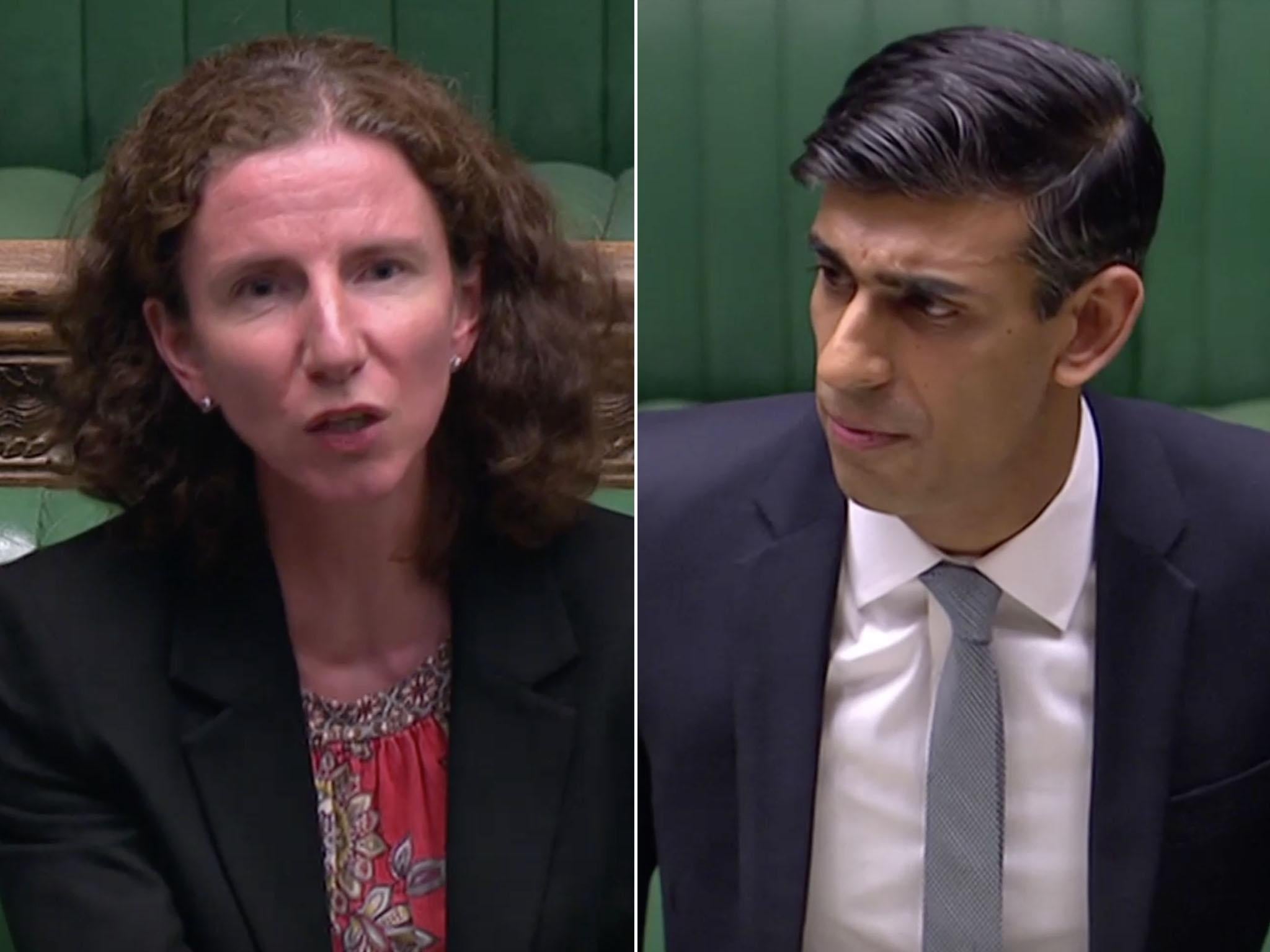Anneliese Dodds failed her first serious test as shadow chancellor
Pretending to support your opponent’s objectives – while concluding that they have failed to be wholly successful in delivering them – is the way to win debates, writes John Rentoul


It is unfortunate for Anneliese Dodds that she is up against the most impressive politician in the government. Both the chancellor and his shadow are inexperienced. This time last year Rishi Sunak was a junior minister for local government; she was a junior member of John McDonnell’s shadow treasury team.
This year, Sunak found himself lifted to the second most important post in government just as the coronavirus crisis was breaking; a few weeks later, Dodds was unexpectedly promoted to oppose him.
There the parallel ends. While Sunak has shone in the limelight, Dodds has not. Yesterday, the chancellor judged the House of Commons well. With a serious tone of bipartisan reasonableness – “unencumbered by dogma” – he set out measures that had been trailed in advance with a couple of populist surprises (the VAT cut for hospitality and the half-price meal deal) that were well received.
Dodds’s response seemed to me to strike the wrong note. She hurried through a prepared text that seemed to have been rewritten at the last moment to take some account of what the chancellor had just said. But instead of starting by welcoming the parts of the statement with which she agreed, she rejected the whole of it: “Today, Britain should have had a back-to-work Budget; but instead we got this summer statement, with many of the big decisions put off until later.”
In her very next sentence she said that “Labour is a constructive opposition during this time of crisis”, before pointing out that “we have one of the highest death rates in the world” and criticising the test, track and isolate system. We all know that the “constructive opposition” line is a pose – just as Sunak’s bipartisan rhetoric is – but at least Keir Starmer, the Labour leader, pretends to take it seriously.
Pretending to support your opponent’s objectives, while sadly concluding that they have failed to be wholly successful in delivering them, is the way to win debates not just in the Commons but in the wider public arena. Labour supports the employment support measures, the VAT cut and the restaurant vouchers, so why not say so, before going on to ask some “constructive” questions about the rest of the mini-budget?
For an effective opposition, the chancellor provided a target-rich environment. But an effective opposition has to welcome the popular measures in order to win permission to move on to the criticism. Thus, although Dodds rightly identified the problem with Sunak’s £1,000 bonus for keeping workers in jobs – “How can he ensure that that money will not just go to those employers who were already planning to bring people back into work?” – she lost the argument in a cliche-ridden barrage of negativity.
Not that she had an argument. At one point she even said that the Conservatives had to “set out how any additional spending will be paid for”. It is being paid for out of borrowing, and quite right too. She sounded as if she thought that taxes should go up so that the government could balance the books, a suggestion more associated with 2010-era George Osborne than with the Labour Party. Indeed, she had just a few moments before said: “Labour is not calling for tax rises. We are calling for growth.”
And when I say cliche-ridden, I mean so hackneyed as to prevent any normal person paying attention. She wanted the chancellor to “abandon his one-size-fits-all approach to withdrawing the job retention and self-employed schemes”; and she dragged in a reference to Roosevelt so that she could quote his successor saying “the buck stops here” before moving on to “to govern is to choose”.
By the end of it, the only person still listening was the chancellor himself, who commented in a tone of polite disappointment: “I have tried to find common ground for our measures with as broad a coalition as possible, including with members of the opposition.”
Nor was it as if Dodds just needed time to absorb the details of the mini-budget. This morning on ITV’s Good Morning Britain she still sounded negative and confused. She said, “I do think the chancellor needs to take a more targeted approach,” which made it sound as if she thought the government is spending too much, when she actually wants it to spend more on the hardest-hit sectors, without acknowledging that Sunak’s VAT cut and voucher scheme are precisely targeted on restaurants and visitor attractions.
Yet, serious questions are now being asked about the benefits of the stamp duty cut, which will mostly accrue to the sellers of more expensive houses in London, and the Resolution Foundation had done more work on the “deadweight” problem of paying employers to keep on workers they would have kept on anyway.
A truly constructive opposition could have asked questions about those problems, while welcoming the broad outline of the government’s response. Then Starmer and Dodds would be better placed to take advantage of the inevitable future missteps from Johnson and Sunak.
Join our commenting forum
Join thought-provoking conversations, follow other Independent readers and see their replies
Comments